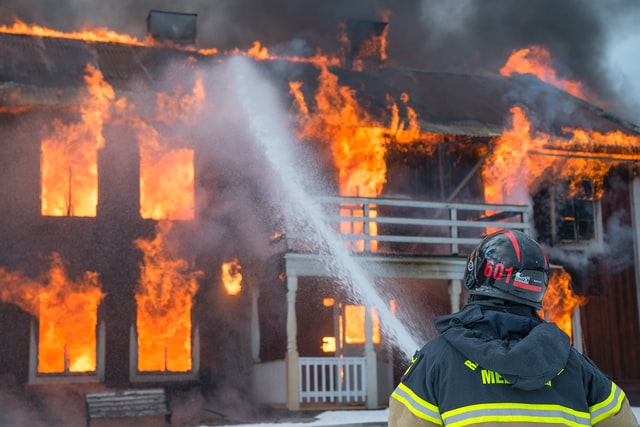
The aftermath of a fire can be devastating for any property owner. Fire damage restoration should be done carefully and efficiently by professionals. Here are tips on what to do and what not to do after a fire has damaged a home.
What to Do?
1. Contact a Restoration Company.
A fire damage restoration company will perform a pre-inspection and post-inspection of the belongings before restoring the property. It should also remove objects, check floors and upholstery, inspect walls and ceilings for water, smoke, and soot damage. Any items that have been damaged by water or smoke should be repaired or replaced. A smoke damage inspection will include checking for odor gas near electrical wiring and fireplaces.
2. Contact an Insurance Company.
Once an assessment has been received from the restoration company, it is essentially an insurance company that is contacted about any damages found. It may also be necessary to contact your company to verify that the fire damage is covered.
An insurance company should begin investigating the cause of the fire and how it may have started. An insurance adjuster will be sent out to assess the damage in most cases. In some cases, when a fire is determined to be intentionally set, an arson investigator may take over the investigation from the insurance company.
3. Save Receipts.
A person should save receipts for any property that has been damaged by fire. These receipts are saved if the insurance coverage can make up for the loss. Receipts or documents are saved for all of the materials purchased for the restoration, including paint and materials for repairing walls and floors.
The most important thing to keep in mind is to make sure you have everything necessary to file a claim with an insurance company. Failure to meet all of their documentation requirements may result in a denial of your claim.
4. Avoid the Scene of Fire.
It is highly advised that a person stays away from a fire until emergency workers clear the area. There are dangerous chemicals and gases released from fires in most cases. It is important to let professionals handle these areas while still hazardous.
Crawling under a smoke-covered house or removing the debris can also cause harm.
What Not to Do?
1. Electronics Should Not Be Used.
Once a fire has occurred, electronics are not used in the area. This includes appliances, televisions, and computers. Any electrical equipment is checked for signs of fire damage first. Any wires that have been burned or connectors that have been melted shouldn’t be used.
2. Property Should Not Be Cleaned.
If a fire has damaged items in a property, it is important not to clean the area as it may cause further damage. In some cases, it is also possible that fire-damaged items can be salvaged after the area has been cleaned up.
In conclusion, people should take their time to find restoration and an insurance company after a fire. For restoration services, find National Restoration Experts near me. Records of the property that has been damaged by fire should also be kept in case there is any question about the amount of compensation necessary for restoring the items lost by fire.
Hey welcome to my blog . I am a modern women who love to share any tips on lifestyle, health, travel. Hope you join me in this journey!

Speak Your Mind